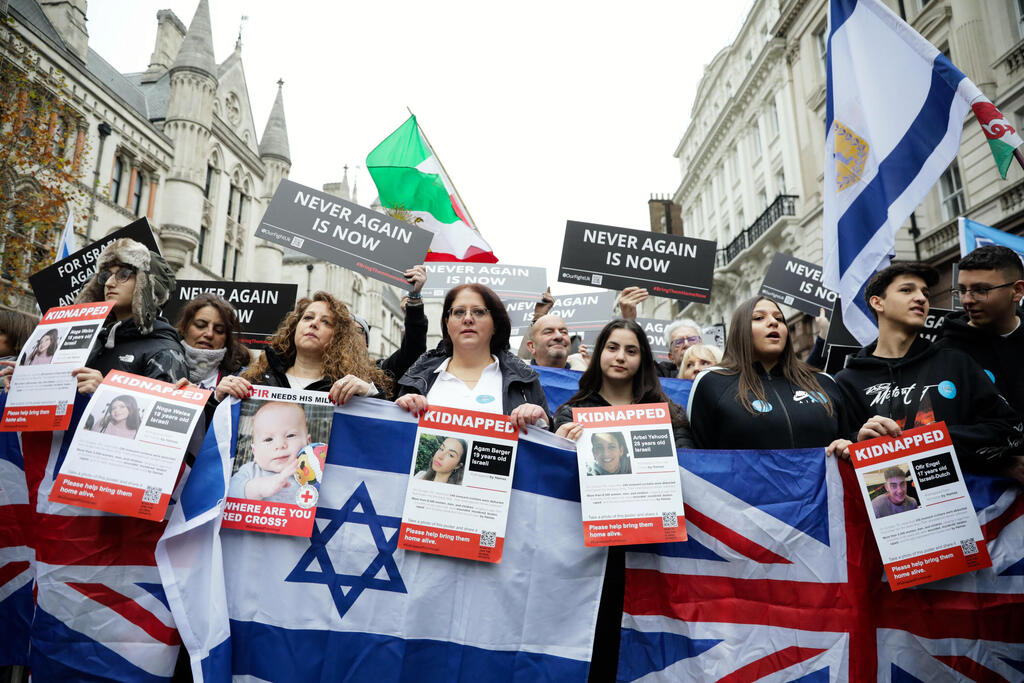U.S. President Donald Trump’s vision for the Gaza Strip is somewhat controversial. Some argue it amounts to illegal displacement under the cover of creating a Middle Eastern Riviera. Others claim it respects the agency of Gazans and provides them with better life alternatives. Regardless of this vision’s feasibility, it has undoubtedly sparked an intensive global debate.
Not in vain did U.S. envoy to the Middle East Steve Witkoff say that “when the president talks about this, it means he wants to shake up everyone’s thinking.” Either way, the effect of Trump's deeds and words is analyzed with a future-looking perspective.
At the center of that analysis are the Palestinians and the preservation of their sovereignty over Gaza. But there’s another sovereignty of another group of people that Trump impacts here and now, which the global discourse neglects to address: The Israelis. Here’s why.
October 7 was nothing like Israel had experienced before. Indeed, Israelis have known tragedies, casualties, emergencies and extreme situations in the past. The daily news cycle in this tiny country, about the size of New Jersey, can feed half of the world's media outlets for an entire year. But during that horrible day, which many Israelis still live through, something else happened that never happened before: Israel lost its sovereignty.
For hours during October 7, significant parts of the Western Negev in southern Israel were conquered by a foreign entity. Alongside the stories of brave locals and security forces alike, entire communities were held captive by Hamas, who acted with a chilling sense of ownership as if they belonged to it. The essential trust that Israelis had in the state's ability to protect them in times of desperate need was severely damaged.
Israeli forces at Kibbutz Be'eri during the October 7 terrorist attack
(Video: IDF Spokesperson's Unit)
The national psyche can ultimately heal from this shocking experience. However, a military campaign cannot be the sole source of such a process. Bombs, rockets and massive ground maneuvers can defeat an enemy on the battlefield, but their ability to restore collective trust in the state — any state — is limited. They are mandatory but not sufficient. The secret sauce here comes from a discipline different from the military one.
The restoration of the sense of lost sovereignty, of people’s belief in a country’s competence to perform regularly and protect them in times of need, primarily originates from the civilian aspects of life; from the occurrences we sometimes take for granted. Schools with caring teachers, functioning hospitals, working traffic lights and clean streets. The common denominator for these seemingly ordinary, everyday manifestations is that they symbolize tranquility. Even more so, they guarantee sanity.
In the Israeli post-October 7 context, the ultimate civil component for restoring the sense of lost sovereignty is one: kids playing in the fields of Kibbutz Be’eri. Where slaughter took place, only innocent laughter can bandage a wounded soul. But one condition prevents us from reaching that point in the first place: the hostages.
Get the Ynetnews app on your smartphone: Google Play: https://bit.ly/4eJ37pE | Apple App Store: https://bit.ly/3ZL7iNv
Indeed, what happened to each one of the 251 people who were kidnapped on October 7 is horrendous. Yet, it is not just their and their family’s tragedy. Each day of their captivity is a constant reminder of that same loss of sovereignty Israelis experienced on October 7. In a way, it is a national trauma, and the way Israel will deal with it will redefine its ethos for generations to come. The reason is that it corresponded with one of the basic principles of Zionism: solidarity. Or, in its Jewish version, “All of Israel is responsible for each other.”
In other words, no ordinary life expressions, even as exciting as children joyfully playing in the fields of the Western Negev, could ensure the restoration of the sense of lost sovereignty without the hostages back home. It is simply on hold. That is also one of the reasons Hamas chose the weapon of abduction in the first place.
The return of 38 hostages in the past weeks, as part of Phase I in the deal between Israel and Hamas, led by President Trump, corresponds precisely with that sentiment. The efforts conducted by the White House, hence, don’t only address the human suffering of specific individuals. It accelerates the healing process of one of its closest allies. It does not assure the much-needed destruction of Hamas, but it does bring “the day after” for Israeli society, not just Gaza, closer.
Pro-Israeli rally in London
(Video: Israeli embassy London)
The coming days, in this sense, are crucial. Negotiations regarding Phase II of the deal, or the extension of Phase I, are being held while 59 hostages are still in captivity. The Israeli challenge would be to find the right formula to bring them all home while maintaining the ability to return to fighting when needed. Moreover, it’ll have to prioritize between the crucial and the urgent. It's easier said than done, but that’s the equation. What’s important to understand, however, is that while a painful price will be paid for engaging in another phase (in any form), it will also be paid for not engaging in it. And the price tag isn’t just the lives of the hostages but the potential restoration of the Israeli sense that its sovereignty was lost.
Trump’s vision is constantly discussed through the prism of affecting the sovereignty of Palestinians. In the meantime, it affected the sovereignty of the Israelis. And with it, it intensified the healing process of an entire nation.
- Gadi Ezra is former director of Israel’s National Public Diplomacy Unit and author of "11 Days in Gaza"




